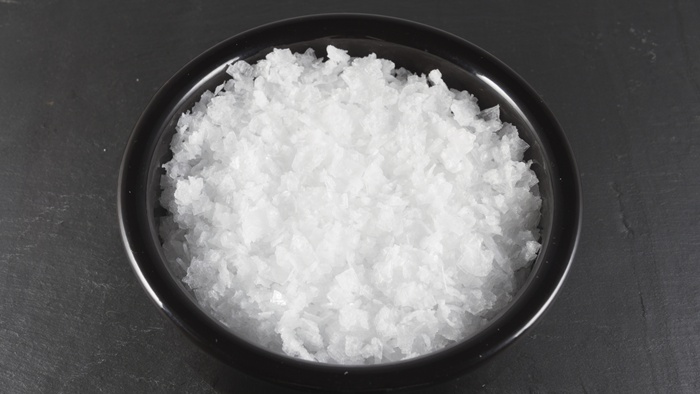
High blood pressure is a problem which a lot of you may be dealing with, or you may find yourself at increased risk of developing. Hypertension is a very common and potentially serious disorder which can increase your risk of heart attack, stroke, migraine headaches, and vision problems. Too much salt or too much sodium can aggravate, or even cause, high blood pressure. For those of you who are salt sensitive, the consumption of sodium from a variety of sources—including prepared or packaged foods—will elevate your blood pressure and keep it elevated. The current recommendation for sodium intake is from 1,500–2,000 milligrams (mg) per day.
Too much salt in these foods
Although this recommendation is important, most of the sodium you eat is already contained within the foods you regularly consume.
Any food items which are canned, cured, or frozen contain too much salt—more than you need, especially in prepared snack foods and takeout foods which contain a great deal of sodium.
Eating too much sodium can cause high blood pressure, so if you use salt in your cooking or add it to your food, here is some advice:
Sea Salt vs. Kosher Salt vs. Table Salt
If you already have hypertension or you are at increased risk of getting it, you will find that most types of salt contain the same amount of sodium per volume as iodized table salt does.
For example, sea salt and kosher salt contain more trace minerals than table salt (sodium chloride), but also have more minerals. It would be advisable to avoid these until your high blood pressure stabilizes.
However, if your blood pressure is normal, I would recommend using sea salt for cooking or as a spice in modest quantities.
Salt substitutes, containing potassium chloride, can also be used successfully to flavor foods and does not elevate blood pressure.
If You Have High Blood Pressure
If you have currently been diagnosed with high blood pressure or you are at increased risk, I recommend trying to reverse the ratio of sodium to potassium in your diet.
If you can do this successfully, even if you are salt sensitive, your blood pressure should normalize without the use of medication.
I recommend that you increase the intake of whole foods—like fruits, vegetables, and whole grains—and eliminate all the foods from your diet that have too much salt, like canned and frozen foods; processed foods; condiments; and fast foods.
New Discovery
Recently, I have also found a product that you may want to know more about. It’s called “SYMBOSIAL,” and can be used as a salt substitute in your diet if you have high blood pressure.
This product contains sodium from sea salt, but without the chloride. The sodium is attached to a substance made from the shells of crabs called “chitosan.” This product does not seem to aggravate salt sensitivity and has the same taste as sea salt. I recommend giving this a try if you want the same taste without the worry.
Sources:
Allaert, F.A., et al., “Double-blind, randomized, crossover, controlled clinical trial of NaCl + Chitosan 3% versus NaCl on mild or moderate high blood pressure during the diet and lifestyle improvement period before possible prescription of an antihypertensive treatment.,” Int Angiol. February 2013; 31(1): 94-101.
Krzesinski, J.M., “Sodium and arterial hypertension –one hundred years of controversies,” Bull Mem Acad R Med Belg 2009; 164(3-4):143-55.













